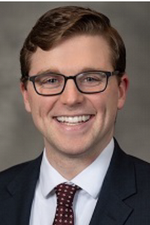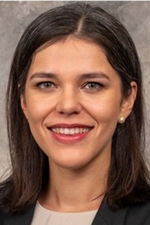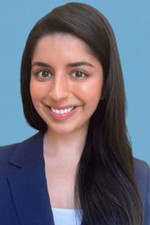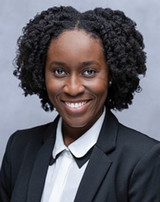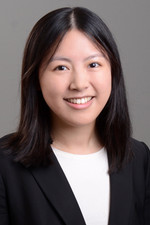Rheumatology Fellowship
The philosophy of the Rheumatology Fellowship training program at Northwestern University Feinberg School of Medicine is to provide the fellow with the resources necessary to undertake a self-directed learning program that will lead to high-level competence in clinical rheumatology and mentored research training. Additionally, the fellow will obtain training in becoming an educator to prepare them to progress to the next step in providing medical education to learners.
The overarching goal of the program is to have the fellow acquire competence in three areas:
- Patient care
- Research
- Medical education
About the Fellowship
Education
The two-year curriculum prepares fellows to sit for the ABIM Certification Examination in Rheumatology. A third year, focused on research, is available as a non-ACGME accredited option. This program is also a recipient of the NIH T-32 Training Grant, which supports fellows pursuing basic, translational or clinical research. The grant provides two years for fellows to build their research portfolio, secure funding and lay the groundwork for a career as a physician-scientist.
Program Structure
- Year 1: Focuses on clinical training
- Year 2: Emphasizes research or medical education, based on fellow interests, while maintaining clinical development
- Year 3: Optional immersive research experience
Fellows gain comprehensive exposure through rotations in ambulatory and inpatient rheumatology, interdisciplinary clinical specialties, research, didactic conferences, continuing medical education and teaching skill development.
Didactic Program
- Fellow Summer Bootcamp: Faculty deliver core lectures reviewing the clinical manifestations of various rheumatic diseases.
- Rheumatology Grand Rounds: Features clinical case and research presentations by faculty, visiting experts, and fellows. Fellows also present clinical vignettes. The CCCR-CTRIS Seminar invites multidisciplinary speakers to present research and promote collaboration.
- Fellows Didactic Series: Includes core curriculum lectures, Journal Club, Radiology Rounds, Board Review, State of the Art lectures, Ultrasound Workshop, Difficult Case Conference and ACR Reading List Review.
- Department of Medicine Grand Rounds: Weekly clinical or translational conferences for all members of the Department of Medicine.
Education Pathways, Certificate Programs & Degrees
Opportunities are available for additional training in specialized areas.
- Certificate Programs:
- Clinical Scholars Program (Focus areas: Global Health, Medical Education, Bioethics and Health Equity and Advocacy)
- Academy for Quality, Safety and Improvement (AQSI)
- Masters Programs:
Research
The research training experience during fellowship ensures that trainees develop a core skill set for functioning as ethical, independent investigators.
Fellows will complete an independent research project, acquiring skills in hypothesis setting, study design, and data interpretation under the direct supervision of a faculty mentor. Research project planning should begin in the second half of the first year, allowing a smooth transition into research at the start of the second year.
For research-oriented fellows pursuing academic medicine, an optional third research year is available. Fellows in this year are exempt from inpatient duties and only required to attend outpatient clinic one half-day per week. This year is supported by a T32 National Research Service Award — a 15-year grant from the National Institutes of Health. With the support of this grant, multiple Northwestern University laboratories offer research training in areas such as rheumatoid arthritis, scleroderma and other rheumatologic fields. Fellows can engage in basic science research or explore epidemiology and health services research led by division members.
Learn more about Rheumatology's T32 and Research Opportunities.
Clinical Experience
Inpatient Rotation
The inpatient rheumatology experience, or consult fellow experience, is primarily covered by first-year fellows in one-month blocks. Weekend coverage is shared between first- and second-year fellows. Third-year research fellows have no inpatient duties to ensure adequate protected research time.
The fellow manages the service, including initial evaluation of patients needing rheumatology consultation, formulating evaluation and management plans, communicating with the referring healthcare team, ensuring continuity of care after discharge, and leading educational efforts for rotating medical students or residents. The consult team provides care for patients at Northwestern Memorial Hospital and the Shirley Ryan AbilityLab. This rotation focuses on developing and refining clinical evaluation skills for patients with rheumatic diseases.
Non-rheumatologic medical management is handled by the primary service overseeing the patient’s care. During this rotation, attending rheumatologists change weekly, allowing fellows to work with a diverse range of clinical faculty.
Ambulatory Experience
First-year fellows spend three half-days per week in the outpatient clinic, decreasing to two half-days in the second year and one half-day in the third year, depending on the academic track. Each half-day, a fellow manages one to two new consultations and four to six follow-up patients. All fellows participate in continuity and subspecialty clinics (lupus, scleroderma, vasculitis, psoriatic arthritis, ultrasound) at the downtown outpatient facility of Northwestern University Feinberg School of Medicine. First-year fellows also have a half-day continuity clinic at the Jesse Brown VA, supervised by an attending physician.
Fellows gain progressive autonomy in outpatient care throughout their training while being appropriately supervised by attending faculty. The goal is to develop expertise in outpatient evaluation and management of rheumatic diseases and an understanding of their natural history over an extended period.
Fellows are exposed to other disciplines integral to the care of patients with rheumatic diseases, including Rehabilitative Medicine, Bone Health and Pediatric Rheumatology. Additional subspecialty disciplines — such as Interstitial Lung Disease, Inflammatory Eye Disease, Neuromuscular Disease, Rheumatic Dermatology, and Myositis — are available based on the fellow's interests. This interdisciplinary experience may include clinical rotations or participation in multidisciplinary conferences, fostering a broader understanding of how these specialties approach conditions related to rheumatic disorders.
Eligibility
- Applicant qualifications include successful completion of an ACGME-accredited Internal Medicine residency and eligibility for the American Board of Internal Medicine's certification exam prior to the start of fellowship training.
- Because of support by an NIH National Research Service Award T32 training grant, applicants must be a citizen or a noncitizen national of the United States or have been lawfully admitted for permanent residence at the time of appointment to the grant.
- Applicants must also be eligible for an unrestricted Illinois medical license prior to beginning training.
Application Process
The fellowship application process is managed through ERAS.
Fellowship selection occurs after the interview process and takes place through the NRMP fellowship match program.
Meet Our Fellows
More Information
Further program details, including our housestaff manual and a sample training contract, are available on our McGaw Medical Center Graduate Education site. We also recommend reading through our FREIDA listing (program number 150-16-21-051).
